
Earth, wind, and fire: Plan for health needs in emergencies
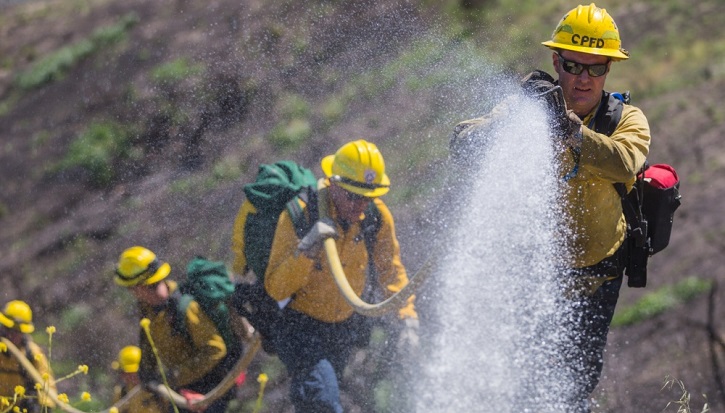
Firefighter Mark Williams, Station 4, Camp Pendleton Fire Department, douses a simulated fire while conducting wild land fire refresher training 130 (WRT) at a mutual threat zone, April 16, 2018. The annual training, held every spring, revolves around a simulated wildfire that firefighters must work together to contain. After the drill, participants discussed which elements went well as well as areas for improvement to ensure readiness for the upcoming fire season. (U.S. Marine Corps photo by Lance Cpl. Kerstin Roberts)
The COVID-19 pandemic has kept people close to home so they can avoid the contagious virus. But the National Oceanic and Atmospheric Administration predicts a more active than normal hurricane season. It is also wildfire season for those living in the Western half of the United States. So now's the best time to prepare for health care needs if an emergency requires leaving home to seek safe shelter elsewhere.
The Atlantic hurricane season typically starts in June and goes through the end of November. The Eastern Pacific hurricane season usually runs from mid-May to the end of November. Already, there have been three named storms, including Cristobal.
NOAA predicts 13 to 19 named storms bringing heavy rain and wind. Six to 10 could become hurricanes, according to NOAA, including three to six major hurricanes. "Major" is defined as category 3, 4, or 5, with winds of at least 111 miles per hour.
For those living in the Rocky Mountains, Texas, and the West Coast, wildfires are of particular concern. Peak season is from May through October. More wildfires occur in eastern and central states, according to the National Interagency Fire Center, or NIFC. Wildfires in the West are larger and burn more acreage, the NIFC said.
California's 2018 wildfire season was the most destructive on record, according to the Centers for Disease Control and Prevention, citing data from the California Department of Forestry and Fire Protection. In California alone, more than 7,500 fires burned nearly 1.7 million acres of land, damaged or destroyed over 23,000 structures, and caused 93 deaths.

In response of Hurricane Dorian, U.S. Army Soldiers unload equipment from a U.S. Army CH-47 Chinook helicopter in the Bahamas, Sept. 9, 2019. In support of USAID's Foreign Disaster Relief efforts, DOD is bringing unique military capabilities to enable the broader response effort. (U.S Army photo by Spc. Jennily LeonRodriguez)
To prepare for emergencies, TRICARE experts recommend first signing up for disaster alerts. The alerts are sent via text and email. TRICARE will give updated information from federal agencies and departments, state and local governments, and the news and other media. TRICARE also will announce procedures for accessing emergency prescription refills, and the dates during which these procedures apply.
Recent events that led to disaster alerts included flooding in Michigan, in May; severe storms in Louisiana, Mississippi, and Arkansas, in January; and wildfires in California, in October.
The TRICARE disaster information resource webpage offers additional advice for preparing for possible evacuation. Here are some tips:
- Plan your exit. Identify a safe escape route as well as a place to shelter outside of the evacuation area. Make sure you share your plan with someone who lives outside of the affected area.
- Make a list. This list should include your health care providers' names and contact information, medications with dosage and frequency, and type and model number of any medical devices you use.
- Get it together. Gather immunization records, insurance paperwork, and medical documents in a waterproof container that’s easy to carry. Put together a basic first-aid kit, and make sure you have enough medication to cover your time away.
- Be mindful of special needs. Those with chronic health conditions or issues with vision, hearing, or mobility should get medical alert tags or bracelets, and identify how they will arrange to get disaster warnings and find assistance to safety.
For those with pets, the U.S.Army Public Health Center publication Vet Connections recommends gathering an emergency kit that includes a two-week supply of pet food, water, and any medications. Make sure you have copies of vaccination and medical records as well.
Some emergency shelters will accept only service animals, the APHC notes, so it's a good idea to identify pet-friendly housing options outside of the evacuation area.
Make sure your pet's ID tags include your current contact information. You also may want to ask your veterinarian about getting your pet microchipped, the APHC says, in case you become separated during the emergency.
Another resource is the Federal Emergency Management Agency guide “Are You Ready.” The 200-page, in-depth guide offers information for people to protect themselves and their families in case of weather emergencies, wildfires, and other hazards.
Summer PCS plans altered by COVID-19
Article
6/29/2020
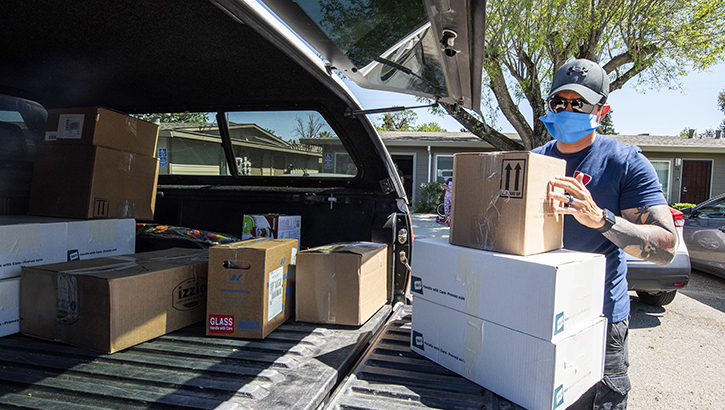
Service members and families have suggestions to keep you safe.
Proper hydration enhances warrior fitness
Article
6/17/2020
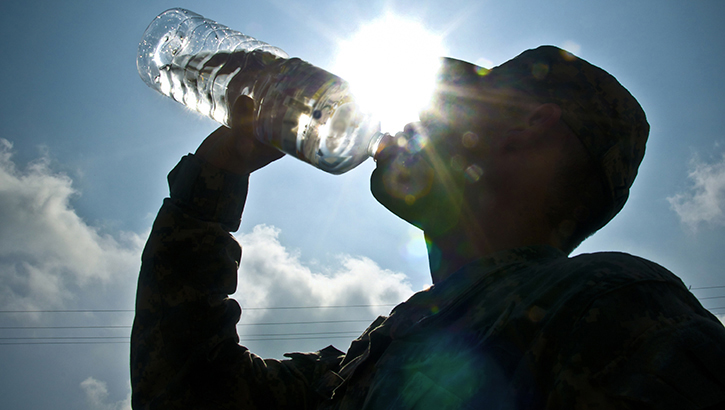
Learn the danger signals of dehydration
Three steps for a successful end-of-summer blow out
Article
8/14/2019

In just three stages, any military family can have a fun-filled welcome party for fall
Summer’s fun, just avoid too much sun
Article
6/25/2019
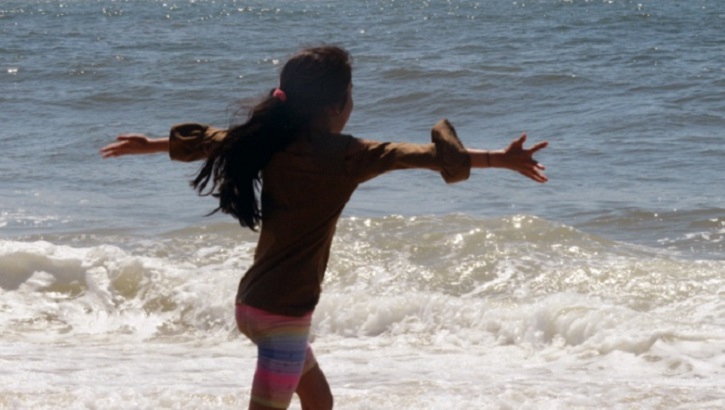
Make sure to protect your skin when enjoying the sun-filled days ahead
The things head lice carry: Stigma and hassle, but no harm
Article
7/31/2018

Lice – a common affliction in school children – are gross but harmless
Preparing for travel can prevent illness
Article
7/18/2018
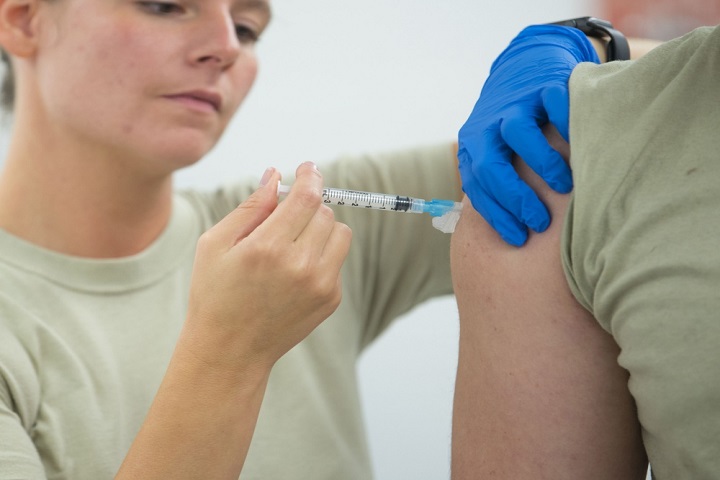
Experts encourage travelers to be proactive about their travel medicine needs, including learning about the health risks associated with the destination and checking with their doctor to make sure they’re in good health
Army entomology experts: Don’t get bitten
Article
7/16/2018
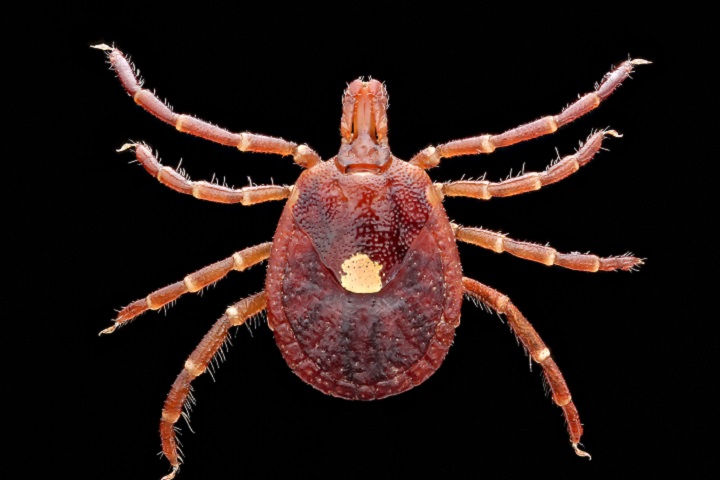
The best way to ensure you don't get sick is to not get bitten
Summer travel: Getting care while overseas
Article
7/10/2018

When traveling overseas, you should know what to do in the event of illness or other health issues
Summer Safety 2018 Hydration Safety
Infographic
7/10/2018

This infographic provides information on ways to stay hydrated while out in the sun.
Heat-related illnesses
Infographic
6/27/2018

Tips to prevent heat-related illnesses
Summer Safety 2018 Mosquito Safety
Infographic
6/20/2018

This infographic provides information on ways to protect yourself from harmful mosquito bites.
Five tips for protecting your skin from the sun
Article
6/18/2018

You have many options for protecting your skin while outdoors in the sun
Summer Safety 2018 Water Safety
Infographic
6/16/2018

This infographic provides information on ways to protect yourself while you're in or near water.
Summer Safety 2018 Sun Safety
Infographic
6/6/2018

This infographic provides information on ways to protect yourself from the sun's harmful rays.
Summer Safety Campaign Main 2018
Infographic
6/1/2018

This infographic provides practical tips to help you practice summer safety while outside.





















.png)












No hay comentarios:
Publicar un comentario